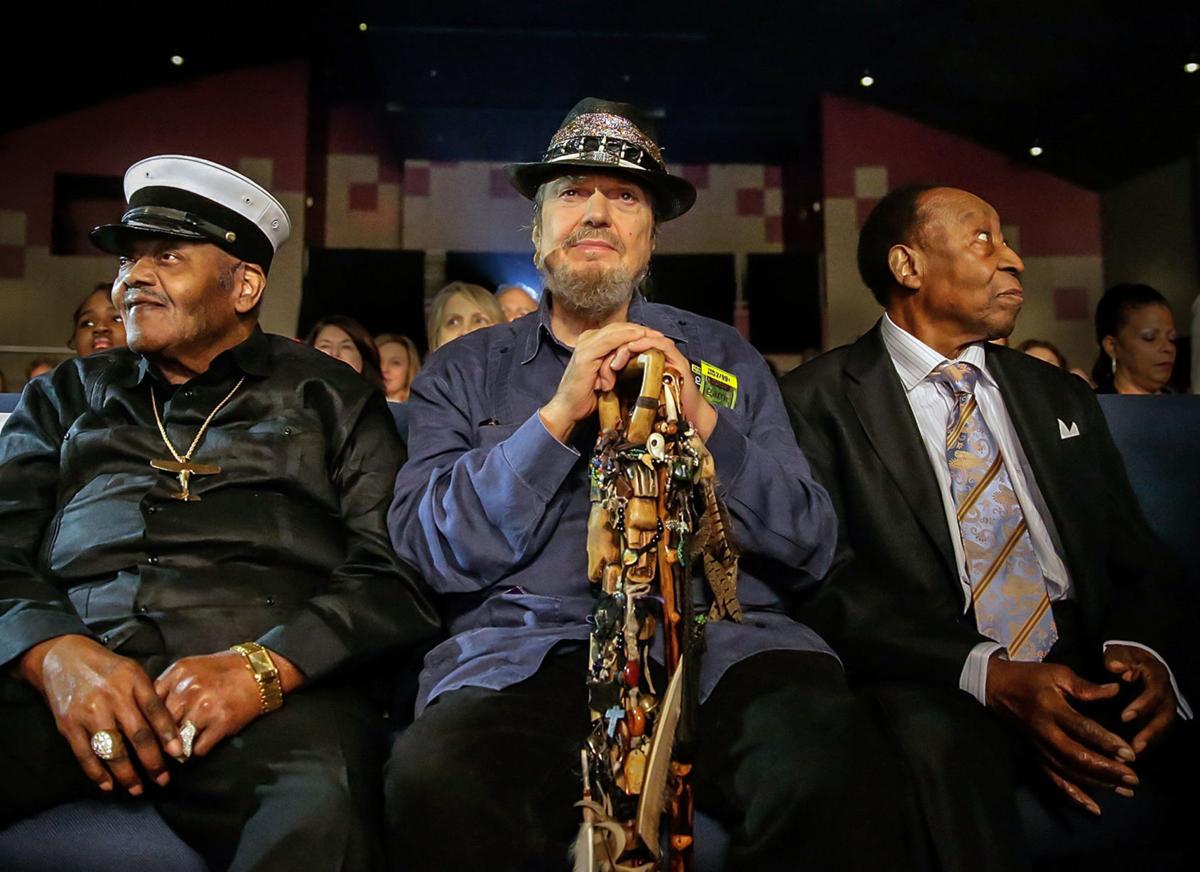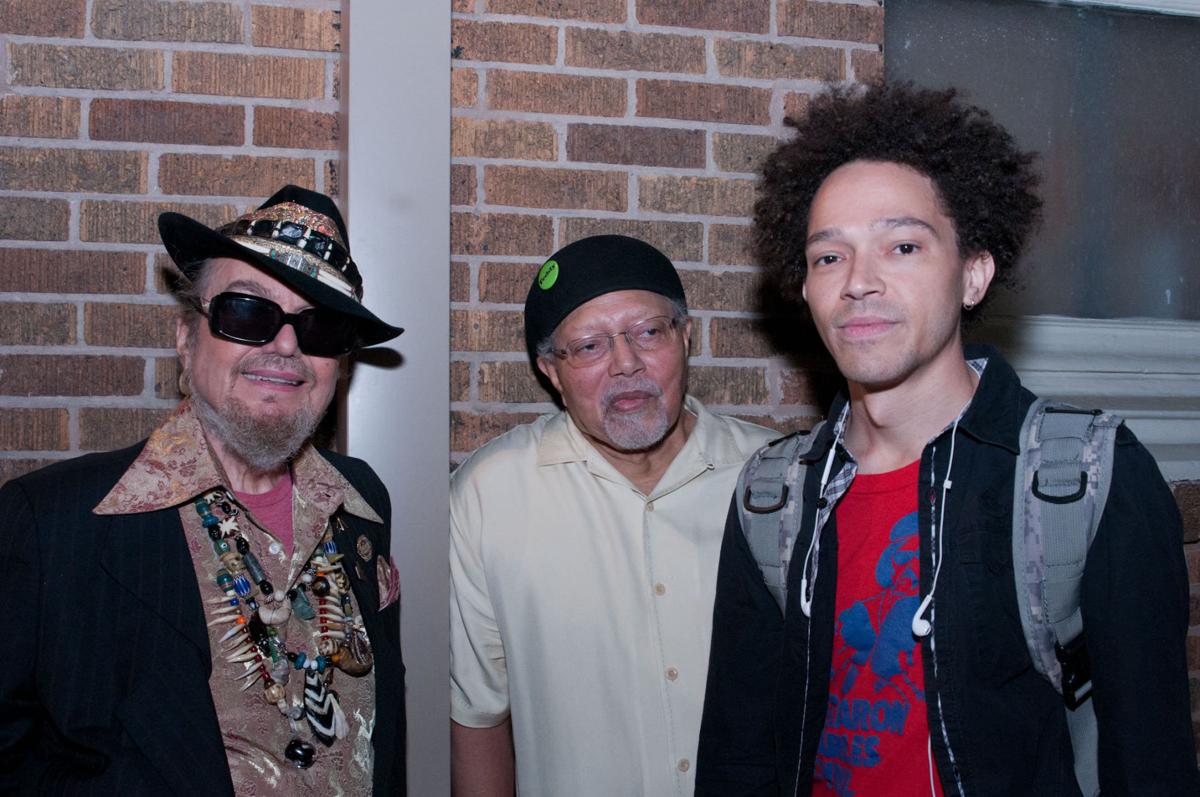Thursday, January 9, 2020
In Memoriam: Three New Orleans Icons
Fats Domino: The Fat Man
[purchase]
Despite Nashville’s self-proclaimed title as Music City, I think that New Orleans might have a stronger claim to the title (although Nashville certainly has a fair argument, and New Orleans already has some pretty good nicknames). I’ve written before about my interest and limited expertise in the area of New Orleans music, but it is fair to say that there are few places where so many types of music have developed and cross-pollinated over the years, and where music is so interwoven into the fabric of the city.
One of the reasons for this was Dave Bartholomew, who died on June 23, 2019 at the age of 100. Bartholomew rarely recorded under his own name, but instead was a trumpeter, composer, bandleader, arranger, and producer who, it could be argued, helped create both rhythm and blues and rock music. After an early career as a trumpeter and bandleader, Bartholomew connected with Fats Domino, and their co-written song, “The Fat Man,” kickstarted Domino’s career. Together, they had 65 singles on the Billboard pop chart from 1955 to 1964, including “Ain’t That A Shame,” “I’m Walkin’” and “Walkin’ to New Orleans.” Bartholomew also wrote or co-wrote "My Ding-a-Ling,” which was a hit for Chuck Berry, “I Hear You Knocking,” for Smiley Lewis, and produced Lloyd Price's recording of “Lawdy Miss Clawdy.” Among many, many others. And many of his songs were covered by artists including Elton John, Paul McCartney, the Rolling Stones, Hank Williams Jr., Elvis Presley, Dave Edmunds, and Cheap Trick. He was also name-checked by Elvis Costello in his song “Monkey to Man.”
Bartholomew remained active into his 80s, and in 2011, appeared in his first rap video –“Born in the Country,” a collaboration with his son, New Orleans hip-hop producer Don B, and grandson, rapper Supa Dezzy.
Dr. John: Right Place, Wrong Time
[purchase]
The young Mac Rebennack’s first studio session was supervised by Bartholomew, before he was Dr. John, and when he was still a guitar player. Rebennack started playing with Professor Longhair at the age of 13, and continued his career as a sideman and leader based in New Orleans, until 1960, when the ring finger on his left hand was injured by a gunshot at a gig in Jacksonville. This led him to switch to piano. At about this time, Mac also got involved with drugs and other illegal activities, and after a stint in jail, he ended up in Los Angeles as a studio musician, including being part of the fabled Wrecking Crew, and backing artists as diverse as Sonny & Cher and Frank Zappa (who fired him due to drug use).
In 1968, he adopted the persona of Dr. John, the Night Tripper, and released his first album, Gris-Gris, containing his particular brew of music, psychedelia, and voodoo. For the next few decades, he had a mostly successful career, with hit songs, exciting live performances, awards, guest appearances and star-studded collaborations, all focused on the varied music of his home city. One highlight was his 1973 album, In The Right Place, a collection of funky songs, including both “Right Place, Wrong Time,” and “Such A Night.” The album was produced by another New Orleans legend, Allen Toussaint, and featured the quintessentially New Orleans band, The Meters.
In later years, Dr. John explored many musical styles, including standards and classic jazz, but also collaborated on one of his last albums with Dan Auerbach. And, he played himself in the great TV show, Treme. Although a long-time heroin abuser, Dr. John had been clean since 1989 and died of a heart attack on June 6, 2019 at age 77.
The Neville Brothers: Fire on the Bayou
[purchase]
One of The Meters, who appeared on In The Right Place, was Art “Poppa Funk” Neville, who contributed keyboards. He was the oldest of four brothers, and began his musical career in his teens. By 1965, he had formed The Meters, which was later joined by brother Cyril. The Meters’ 1975 album, Fire In The Bayou, was a critical and popular success, and after all four brothers appeared on 1976’s The Wild Tchoupitoulas, an album of "call-and-response" style chants typical of Mardi Gras Indians, led by George “Big Chief Jolly” Landry, the Nevilles’ uncle, they formed The Neville Brothers. The group became a New Orleans institution, and for years, the New Orleans Jazz & Heritage Festival closed out with a Neville Brothers set.
In 1991, Art and Charles Neville inducted Dave Bartholomew into the Rock & Roll Hall of Fame. Neville later reunited with his Meters collaborators, and performed with both acts over the ensuing years. Neville retired from music in 2018, and died at the age of 81 on July 22, 2019, after years of declining health.
Posted by Jordan Becker at 9:00 AM
Labels: Art Neville, Dave Bartholomew, Dr. John, fats domino, In Memoriam, The Meters, The Neville Brothers
blog comments powered by Disqus































































































































































































































































































































































































